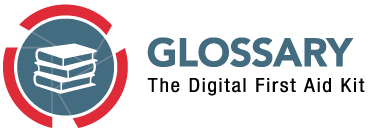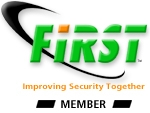
The Digital First Aid Kit
The Digital First Aid Kit aims to provide preliminary support for people facing the most common types of digital threats. The Kit offers a set of self-diagnostic tools for citizen, human rights defenders, bloggers, activists and journalists facing attacks themselves, as well as providing guidelines for digital first responders to assist a person under threat.
Glossary
- DDoS / Distributed Denial of Service Attack: A ‘Denial of Service’ attack is where a malicious user (or users) crowd out legitimate users of a service such as a website or a chat server. Sometimes it’s one ‘attacker’ trying to do this to your site, which doesn’t usually cause much of a problem - unless you pay for bandwidth. More common is the ‘Distributed’ Denial of Service (DDoS), where an attacker uses thousands of machines under his control to targets a site.
- DNS Record: The DNS record is like the master contact list of phone book of the internet. All website servers are identified by a series of numbers and/or coded letters (the IP Address) - Google.com is 74.125.228.69, for example. By changing this record, you can give out a different IP Address for a website, i.e. a new hosting provider’s address or a proxy for your original website.
- Domain Name: The human-readable name of your website - Google.com, for example.
- End-to-end encryption: means that messages or files leave your device encrypted and remain encrypted until they reach the rights address (a specific user).
- Hibernate: A process by which the computer will attempt to use the least amount of energy while providing the ability to boot up quickly. Like the sleep state, the system shuts down the display, hard drives and remotely connected devices, but will continue providing enough power to the computer to start quickly. It does this by writing the content of the memory to a file on the disk. On some computers the hibernate state can lower the security of the system. See also: Sleep
- IM: Instant Messaging. Examples of Instant Messaging are services like Google Chat and Facebook Chat, or any service using the XMPP (Jabber) method.
-
Nameserver: When a browser wants to find a website it will first contact a name server. This tells the browser to connect the domain name (Google.com) to it’s internet address / IP Address (74.125.228.69) via it’s DNS Record (above). By changing the DNS record at a name server, you can ‘point’ the browser to a different server.
- Technically speaking the browser still checks with /etc/hosts before going to DNS, that’s how one can block access to FB on their computer by routing facebook.com to another IP address. It is also useful for accessing some websites blocked through DNS blocks.
- Sleep: The operating system shuts down the display, hard drives and remotely connected devices off but will continue providing enough power to the computer to start quickly. Unlike the Hibernate state, the content of the memory is not written to disk.
- SSL: See explanation Transport Layer Encryption or Wikipedia
- SRV or Service record: A Service record or SRV record is the record in the Domain Name System that defines the location, (the hostname and port number) of servers for specified services.
- Threat modeling: a way to make a assessment of the threats you are facing, the origin from the threat and the assets you are trying to protect. The threat can vary depending on your location, what you do and who you are working with.
- Transport Layer Encryption: are cryptographic protocols (Transport Layer Security (TLS) and Secure Sockets Layer (SSL) designed to provide secure communication channels over the Internet.
- Vetting: is the process of performing a background check on an individual or an organization before engaging into a financial, service or other type of relationship with them.
- Website host: The server where your website and its files/databases are stored.
- See also
About The Digital First Aid Kit
The Digital First Aid Kit is a collaborative effort of EFF, Global Voices, Hivos & the Digital Defenders Partnership, Front Line Defenders, Internews, Freedom House, Access, Qurium, CIRCL, IWPR, Open Technology Fund and individual security experts who are working in the field of digital security and rapid response. It is a work in progress and if there are things that need to be added, comments or questions regarding any of the sections please go to Github.
This work is licensed under a Creative Commons Attribution-ShareAlike 4.0 International License.


